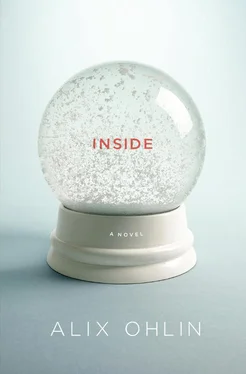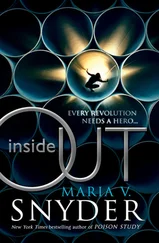“It’s our pleasure, really,” Diane said. She had long, dirty-blond hair and wide-set, strangely vibrant blue eyes. Anne wondered if they were colored contacts. She was having a little trouble concentrating. Ordinarily she worked best one-on-one, responding to cues from the person in front of her; with two people, though, each broadcasting a distinct sexual energy, she couldn’t quite figure out how to play the situation.
“Okay, my dear,” Michael said. “Enough shameless flattery. Are you relaxed? Let’s talk about the story. Then let’s hear you work with it.”
The character was an abused woman who triumphs against the odds and finds love again. In the scene Anne had been given, she confronts her cold, unremorseful husband, the abuser, with anger, tears, and recriminations.
Now sitting behind his desk, Michael was reading the husband’s part. Diane had pulled up a chair beside him and was fiddling with her nails.
Anne figured she knew this much: When sex is there at the beginning, it’s still there at the end. Even a woman who hates you still wants you to think she’s beautiful, desirable, so great that you never should’ve treated her so badly, never should’ve let her go. So she played the scene as sexy as she could make it.
When she was done, Diane muttered something under her breath, but Anne couldn’t hear what it was.
“Fabulous,” Michael said routinely. “Could you just give us a minute, darling?”
“Sure.” She stood outside in the hallway, breathing a bit heavily, adrenalized and a little turned on. An old boyfriend, a medical-school dropout, had told her that when he needed to calm down during sex, he used the images of diseased skin from his dermatology textbook. Pustules, rashes, oozing sores. Of course, after he told her this, during sex she was always thinking about him thinking about skin diseases, and pretty soon she was too turned off to see him again. But she kept the technique. After running through the images in her mind, she felt more nauseated than anything else.
The door opened and Diane smiled at her, blue eyes glowing. “Let’s go down the hall and see if the camera loves you as much as we do, okay?”
She went through the scene again, this time with an actor Michael brought out without explaining who he was. Anne didn’t recognize him. When they were done, he unbuckled his belt, peeked down his pants, and said, “Scared the shit out of you, didn’t she, buddy?” Then he laughed and left the room, patting Michael on the shoulder. Anne could have turned this remark over endlessly in her mind, but didn’t. Her mother had once told her that whoever cares the least has the greatest advantage. It wasn’t a motto she herself had been very good at putting into practice. But Anne was.
And it must have worked, because months passed before she went back to New York. She let her apartment languish there, unpaid — it wasn’t her name on the lease, and the furniture was worthless, so who cared? — as a new life in L.A. grew up around her.
She was cast in the pilot and had read-throughs with the actor playing her husband — not the one from the original audition, but a kindly type who brought a charming snakiness to the role that was significantly more disturbing. As she studied the script, she realized that what she’d thought was a starring role was in fact a small, supporting one. How had she gotten this impression? Had they actually lied to her or simply let her believe something that wasn’t true?
The main character was a man who had partnered with her husband in a business deal whose crookedness extended to the top echelons of a major corporation and, from there, to the government. Her job was to be beautiful and damaged — at one point she was taken hostage — and in most of her scenes she had no lines, because she’d been gagged.
Diane found her a place to stay, a tiny mother-in-law cottage on some producer’s estate. It had a sweet little yard clustered with cactus and blooming plants, fuchsia petals leaning gaudy and lovely against the stucco walls. Beyond the garden was the mansion where the producer lived, a Spanish-style villa with a red tiled roof. Diane also leased her a car and gave her an advance on her salary. She was almost impossibly helpful, and from this Anne could only deduce that Diane thought she was going places. When she told Julia what was happening, a tightness stole into her agent’s voice that she recognized as the palpable fear that Anne would screw it all up. This fear was justified. The easier things came to her, the more worthless they felt, and the more she was tempted to cast them aside.
But she liked Diane. She could be catty and obnoxious and she talked shit about Michael behind his back. She told Anne that her little cottage was hideous and had to be redecorated as bluntly as she had told her that her ass was saggy and she needed to join a gym.
“I don’t do gyms,” Anne said.
“Honey, this is L.A.,” Diane said. “You don’t have a choice.”
They compromised by jogging together on the beach, a picture of California living so cinematic that Anne had a hard time keeping a straight face. Fortunately, Diane was extremely fit and the pace she set forced Anne to breathe hard, straight face or not. Afterward she made Anne order an egg-white omelet, paid the check, then drove her home. She didn’t introduce her to anybody else, and for the first two weeks she was the only person Anne knew in town.
At home, she read and reread the script. She sat on a patio chair in the garden wearing a broad-brimmed hat, letting the sun play on her legs. Other than that, she had nothing to do. Sometimes she got in the car and drove around aimlessly, along the city’s wide avenues where no one was on foot, so unlike New York. She never thought about what would happen next; she lived in the bubble of the present moment, waiting, waiting.
On Monday of her third week, Michael called to say that the funding couldn’t be secured and the project was dead. “Fortunately for you, my darling child, you’ll get snapped up by somebody else before you can even turn around. Some of these other assholes are going to be in real trouble.”
After he hung up, Anne called Julia, who said, “What did you do?”
“It wasn’t me. The whole deal fell through.”
Julia sighed. “I guess you better come home.”
“Will they pay for my ticket back?”
“Please,” Julia said.
That night Diane showed up with two bottles of rosé, which they drank while sitting on the plastic lawn furniture in Anne’s living room.
On the third glass, Diane burst into tears. “I’m just so fucking tired,” she said, her blond hair shining in the dark.
In front of them, the windows of the producer’s villa glowed with light, though nobody ever seemed to be at home. The lights were on timers that went off and on at the same time every day. There were alarm systems, pesticide warning signs, gardeners, and maids, but no one who actually seemed to live there.
“What happens now?” she asked Diane, who shrugged, her usually erect posture collapsing under the wine.
“We all hustle and find something else to do. You’ll do great, you just have to get out there. You’ve got so much fucking charisma it’s ridiculous. I, on the other hand, will get fired, probably tomorrow.”
“You will? Why?”
“Because this is the third project I’ve had fall apart on me. Three strikes, you’re out. Like baseball and jail.”
“But what are you going to do?”
Diane snorted. “Look for another job, I guess, where I can get fucked over by a fresh set of faces.”
Something about her transparent made-up toughness reminded Anne of Hilary, and she sighed.
Diane looked up, laughing. “Look at how pathetic we are. It’s terrible. Let’s go out or something.”
Читать дальше












